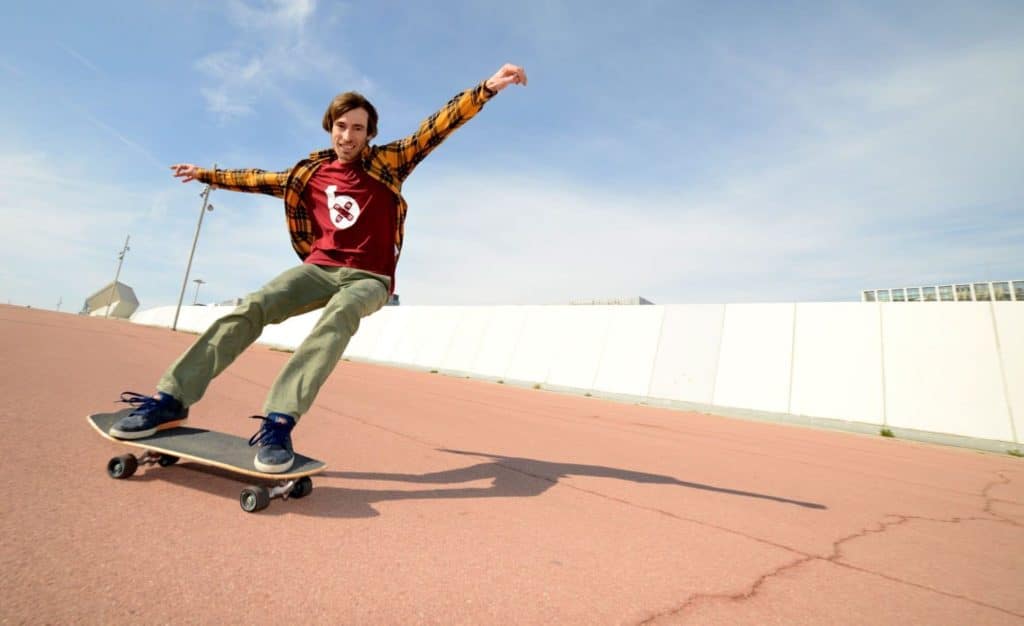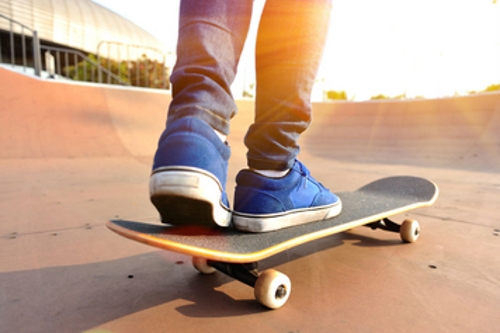The Skateboarding Revolution: From the Streets to the Olympics

Skateboarding, once a subculture sport emblematic of countercultural movements, has now skated its way onto one of the grandest stages of global sport—the Olympic Games. From its humble beginnings to becoming an Olympic sport, skateboarding has been on a remarkable journey, reflecting broader changes in society and sport. With its inclusion in the Tokyo 2020 Games and the upcoming Paris 2024 Olympics, skateboarding is set to captivate a global audience once again.
A History of Skepticism and Triumph
The road to the Olympics has not been easy for skateboarding. For years, the sport battled perceptions of being just a rebellious pastime rather than a legitimate competitive endeavor. Despite these challenges, the early 2000s marked a turning point as discussions began to recognize skateboarding’s global appeal and potential Olympic inclusion. It wasn’t until 2016 that the International Olympic Committee (IOC) officially welcomed skateboarding into the fold for the Tokyo 2020 Games.
Tokyo 2020: Skateboarding Makes Its Mark
Tokyo 2021 was a watershed moment for skateboarding. The sport was introduced in two main disciplines: Street and Park. Street competitions mimicked urban environments with stairs and handrails, while Park events featured complex curves and ramps designed for aerial tricks. The inclusion of skateboarding brought a fresh, dynamic vibe to the Olympics, showcasing the creativity and athletic prowess of skateboarders from around the globe.

Anticipation Builds for Paris 2024
As the Paris 2024 Olympics approach, the excitement within the skateboarding community is palpable, especially given the iconic setting at Place de la Concorde. Both men’s and women’s competitions will showcase talents in Street and Park disciplines, promising a blend of skill, control, and creativity on a global stage. Naturally, as we delve deeper into the research on competitors and form, the Olympics odds start to take shape, giving fans and athletes alike a clearer picture of what to expect as the event draws nearer.
Favorites and Challengers
In the Men’s Street discipline, the focus is on Japan’s Yuto Horigome, the reigning Olympic and X Games champion, who is a strong favorite despite the intense competition within his own national team. Japan’s depth in this category is impressive, with five of the top ten men’s street skaters globally hailing from there, creating a tough internal battle for Olympic spots.
For Women’s Street, Momiji Nishiya from Japan, the reigning Olympic gold medalist, continues to be a dominant force. Alongside her, Brazil’s Rayssa Leal remains a top contender, blending youthful exuberance with formidable skill. Both athletes represent the incredible talent and competition expected in Paris.
In the Park category, Cocona Hiraki from Japan, a silver medalist from Tokyo and a world champion, leads the predictions for favorites. Her consistency and remarkable skill at a young age have kept her in the spotlight. Sky Brown from Great Britain, known for her versatility and strong social media presence, also stands out as a contender in the women’s park event, bringing a unique flair to the competition.

Emerging Talent and Underdogs
The sport continues to see an influx of young talent who are pushing the boundaries and could emerge as dark horses in the upcoming games. Notable among them are the Australian skaters, Chloe Covell and Arisa Trew, who at just 14 years old, have already made waves with their performances at the X Games, hinting at their potential to disrupt the standings in Paris.
Team Dynamics and National Representation
France, as the host nation, has its own set of athletes to watch, including Aurélien Giraud and Vincent Milou in Street, who could leverage home advantage to clinch a podium spot. In the Park discipline, Vincent Matheron and Madeleine Larcheron are names that resonate within the French skateboarding circles, both bringing strong potential to the games.
Overall Outlook
With the integration of skateboarding into the Olympics, the sport has gained unprecedented exposure, attracting a diverse array of talent and fostering a spirit of international camaraderie. The Paris 2024 Olympics will not only be a testament to skateboarding’s evolution but also a celebration of its vibrant culture and the athletes who continue to push its boundaries. As the event draws closer, all eyes will be on these skateboarders as they prepare to make their mark on one of the world’s most prestigious stages.
Cultural Impact and Expansion
Since its Olympic debut, skateboarding has enjoyed a surge in popularity, bringing new participants and spectators to the sport. This inclusion has not only broadened skateboarding’s audience but also challenged stereotypes, showcasing the sport’s diverse and inclusive nature. The Olympics have provided a platform for female skateboarders and young talents to shine, further enhancing the sport’s appeal and pushing the boundaries of what can be achieved on a skateboard.
The Future of Olympic Skateboarding
As skateboarding gears up for another Olympic appearance, much speculation exists about how the sport will continue to evolve and adapt. Changes to competition formats and rules may emerge, reflecting the sport’s progressive and innovative spirit. The global skateboarding community remains eager to see how their sport will develop on this prestigious stage, continuing to attract fans and influence cultures worldwide.
Conclusion
From street corners and back alleys to the grand Olympic stadiums, skateboarding’s journey is a testament to the sport’s enduring appeal and its ability to transcend its underground roots. As we look towards Paris 2024, the sport is not only poised to deliver more breathtaking performances but also to inspire a new generation of athletes. Skateboarding at the Olympics is a celebration of youth, creativity, and global culture, marking a new chapter in the history of this vibrant sport.


